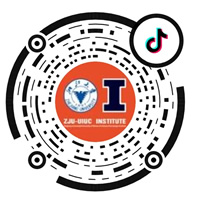
Title:Some perspectives on how engineering and mathematics could help each other.
Abstract: The first part of this talk concerns some perspectives on how an engineer could learn mathematics by sticking to several key principles of engineering. As an example, I will take complex numbers to show how some seemingly esoteric mathematics can be brought down-to-earth by proper engineering. The second part of this talk contains some examples on how mathematics could help fluid mechanics. I will briefly introduce some of my research on numerically simulating incompressible flows with irregular and moving boundaries. This talk is intended to a wide audience: one will be able to understand (and hopefully also enjoy) the talk provided that she can do arithmetic and know what trigonometric functions are.
Qinghai Zhang got his Bachelor and Master degrees in engineering in Tsinghua University. After obtaining his Ph.D. in Cornell University in ocean engineering, he did his postdoc in Lawrence Berkeley National lab and was a research assistant professor at the mathematics department in the University of Utah. He has been a professor of mathematics in Zhejiang University since 2016 and is currently Department Chair of Computational Mathematics. His research concerns mathematical modeling and high-fidelity numerical simulation of incompressible fluids with moving boundaries, and his specialties are interface tracking and finite volume methods. For the study of multiphase flows, he solves geometric and topological problems with tools in geometry and topology. He has developed a set of mathematical theory and a series of fourth-order algorithms for the numerically solving the incompressible Navier-Stokes equations with moving boundaries. He has published dozens of papers in scientific journals such as 《SIAM Review》、《Mathematics of Computation》、《SIAM Journal on Numerical Analysis》、《SIAM Journal on Scientific Computing》、《PNAS》、《Journal of Computational Physics》 and 《Computer Methods in Applied Mechanics and Engineering》







